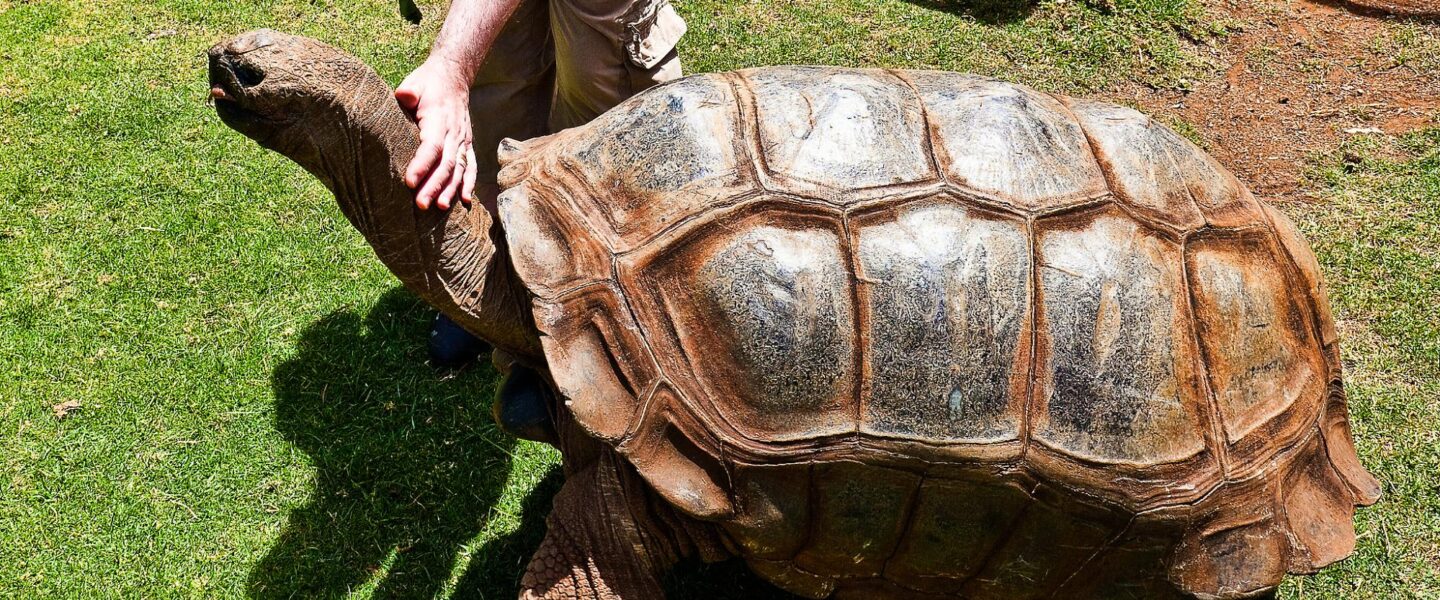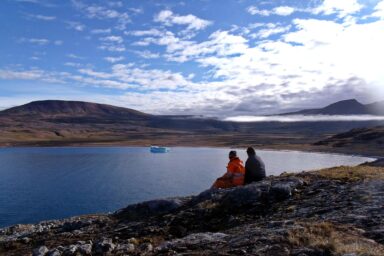Thousands of Giant Tortoises Anchor Thriving Ecosystem on Remote Atoll
PICKS are stories from many sources, selected by our editors or recommended by our readers because they are important, surprising, troubling, enlightening, inspiring, or amusing. They appear on our site and in our daily newsletter. Please send suggested articles, videos, podcasts, etc. to picks@whowhatwhy.org.
|
Listen To This Story
|
Thousands of Giant Tortoises Anchor Thriving Ecosystem on Remote Atoll (Maria)
The author writes, “Life on Aldabra atoll, on the western fringe of the Indian Ocean, moves at the pace of its oldest inhabitants. … On an atoll dominated by giant tortoises, the real work of ecosystem engineering begins at the back end of this slow-moving grazer. Aldabra’s tortoises — much like elephants — alter the landscape and create rich habitats for other life. Their influence runs deep. They fertilize the thin soil and spread seeds with their dung. They mix up and aerate the soil through their lumbering movements. And they create a unique grassland ecosystem known as ‘tortoise turf’ that supports a wealth of other species.”
Efforts Underway to Track Trump Administration’s Changes to History (Al)
From National Parks Traveler: “While the Trump administration has been changing, altering, or in some cases erasing history from federal government websites, there are organizations out there that have been working to protect that history. The George Wright Society is one such organization, and has been able to capture three terabytes — an amount equal to 3,000 gigabytes, or about the amount of space you’d need to hold 52.5 million PDF pages — of webpages from the National Park Service, U.S. Forest Service, Bureau of Land Management, National Oceanic and Atmospheric Administration, and other federal government websites.”
Cosmopolis on the Brink: How a Rural WA Town Illustrates an American Crossroads (Reader Steve)
From The Seattle Times: “Cosmopolis, Grays Harbor County — For a long time, this small and struggling community along the Chehalis River bled money, but newly elected Mayor Linda Springer set a new direction when she assumed public office for the first time last year. No longer can Cosmopolis rely on artificially high revenue estimates, waiting and hoping for the pulp mill in town — once its largest employer — to reopen. Budget lines can’t be filled in with promises and maybes, Springer said.”
Climate Crisis on Track to Destroy Capitalism, Warns Top Insurer (Laura)
The author writes, “The climate crisis is on track to destroy capitalism, a top insurer has warned, with the vast cost of extreme weather impacts leaving the financial sector unable to operate. The world is fast approaching temperature levels where insurers will no longer be able to offer cover for many climate risks, said Günther Thallinger, on the board of Allianz SE, one of the world’s biggest insurance companies. He said that without insurance, which is already being pulled in some places, many other financial services become unviable, from mortgages to investments.”
CDC’s Cruise Ship Inspectors Laid Off Amid Bad Year for Outbreaks (Dana)
From CBS News: “All of the full-time employees in the Centers for Disease Control and Prevention’s Vessel Sanitation Program are now off the job, multiple officials tell CBS News, gutting the agency’s ability to investigate outbreaks and conduct health inspections on cruise ships. A smaller group of 12 U.S. Public Health Service officers will remain.”
Paris Said Au Revoir to Cars. Air Pollution Maps Reveal a Dramatic Change. (Russ)
The authors write, “Over the past 20 years, Paris has undergone a major physical transformation, trading automotive arteries for bike lanes, adding green spaces and eliminating 50,000 parking spaces. Part of the payoff has been invisible — in the air itself.”
Plant-Based Waterproof Material Could Replace Single-Use Plastics (Sean)
The author writes, “Cellulose, the main component of paper, can be turned into clear, waterproof objects such as cups that are almost indistinguishable from plastic, but break down more quickly.”




